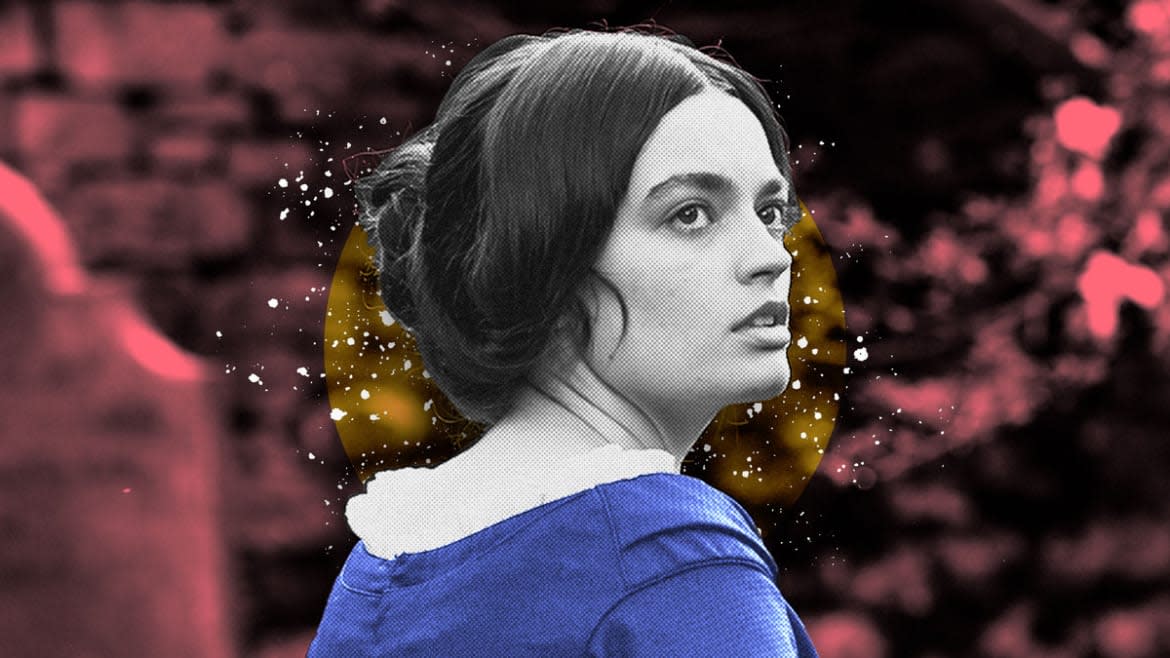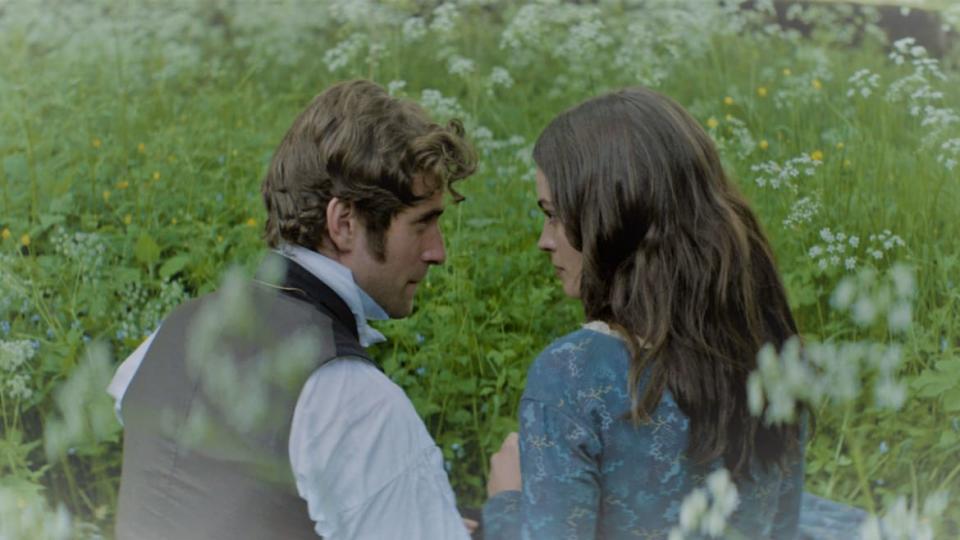Sex, Drugs, and Iconic Prose: In ‘Emily,’ Emily Brontë Gets to Run Wild

- Oops!Something went wrong.Please try again later.
To deploy an earned cliche: Emily, Australian actress Frances O’Connor’s expertly well-rounded directorial debut, is arriving at just the right time. With full-throated earnestness and charged romanticism, the period drama, out now in theaters, offers a window into the brief adult life of Emily Brontë, author of the iconic romance novel Wuthering Heights.
Emily is a biopic that takes healthy liberties with history, but much like the surrealist Princess Diana movie Spencer, it exudes poetic love for the mercurial woman at its center—played here by a mesmerizing Emma Mackey. Unlike Spencer, however, Emily is a lot of fun to watch.
“I read Wuthering Heights when I was about 15,” O’Connor tells The Daily Beast. “I read it on a school bus and it was about a half-hour journey, and by the time I got off the bus I really felt like I’d been somewhere.
“I’ve always wanted to know who Emily was as a person, and in making the film, I also wanted to write a story that would help me understand her better, but maybe not in a literal way,” she continues.
Historical accounts have it that Emily, the most brooding and arguably most brilliant Brontë sister, conceived her 19th century masterpiece while living a life of decidedly drab and unadventurous seclusion. But the prospect of sitting through hours of an introvert’s candlelit scribbling isn’t exactly enticing for most moviegoers (unless you’re a fan of Anders Weberg). Instead, O’Connor, who also wrote the script and completed shooting the film under a tight six-week deadline, builds a lush and dynamic world of sprawling landscapes and moody interiors for her characters to traipse through. She also cleverly externalizes the “real” Emily’s inner rebellions through enthralling sequences of the heroine dabbling in voyeurism, drug use, and other debauchery. Following in the footsteps of her wayward, hard-drinking brother, who’s in many ways her soulmate, Movie-Emily even gets a tattoo, or what looks like a tattoo.
“I’m playing with the myth of Emily Brontë,” O’Connor explains of the film’s artistic liberties. “There’s something delightful about the idea that she might be taking opium out on the Moors.”

Oliver Jackson-Cohen (left) and Emma Mackey (right).
And yet, there’s nothing cheap about it—Emily and her fellow famous sisters (including Jane Eyre novelist Charlotte and The Tenant of Wildfell Hall author Anne) are coping in different ways with the void left by their mother’s death. Whereas Charlotte prefers to bury the loss beneath the veneer of her respectable career as a teacher, Emily opts to confront it head-on—best illustrated by a terrifying sequence in which she dons a mask during a dinner party game and, depending on your interpretation, either channels or pretends to be her dead mother.
“Emily was someone who had a real sense of her own power,” O’Connor says. “She had this wild imagination, and she had this huge intelligence. She was very musical. For me, the themes of Emily are about authenticity and being OK with being different, and celebrating that. If you can really own that, that’s how you’re going to find your own voice and be able to say something that’s going to enrich the collective.”
Then there’s the film’s requisite turbulent amour—one rivaling that of Wuthering Heights’ Heathcliff and Cathy. After several erotically charged French tutoring sessions, Emily falls urgently into an affair with a family friend, a man of God; you can see the wrenching dissolution between the Gothic scribe and the moral gentleman coming long before our heroine does. Whether it ever took place in real life is irrelevant—damn, is this a hot romance. (Certain scenes evoke Joe Wright’s Keira Knightley-led version of Pride & Prejudice, which is about the highest compliment I could ever bequeath.)
Throughout the film, you’re swept along by the passion of a woman who is so thoroughly herself, whether she’s making up stories while lolling alone on a grassy knoll, or craning her neck with anticipation as she watches her soon-to-be lover approaching the cabin he’s selected for a secret rendezvous.
Perhaps it’s not fashionable in our irony-poisoned era, but Emily is an instant classic, especially for young women coming to terms with their talent and with themselves.
“The main message of the film is just to be true to yourself, even if it’s not reflected back to you,” O’Connor says. “That’s where good art comes from.”
Get the Daily Beast's biggest scoops and scandals delivered right to your inbox. Sign up now.
Stay informed and gain unlimited access to the Daily Beast's unmatched reporting. Subscribe now.

